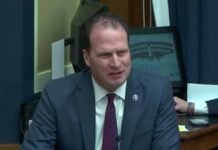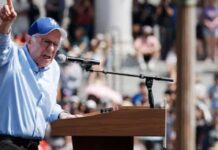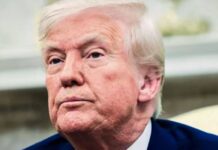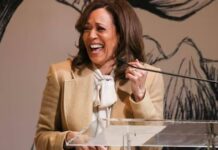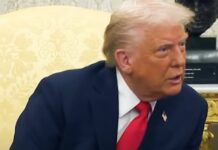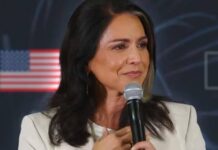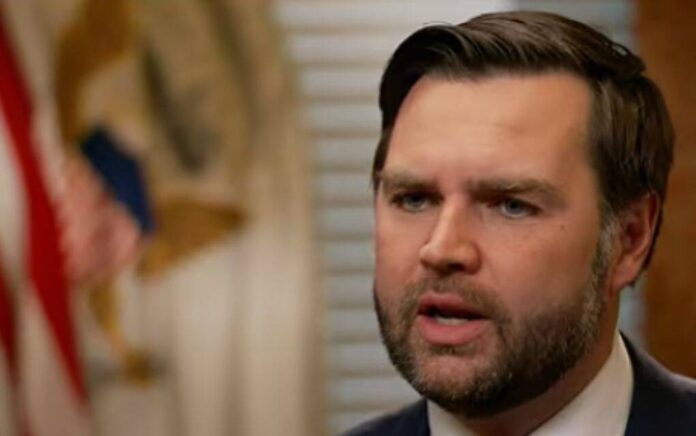
Vance isn’t one to hold back. He’s always going to tell it like it is.
And JD Vance lashes out at this foreign leader in a move that’s raising eyebrows.
Tensions Flare Between Vance and Zelensky Over Ukraine War Stance
In an exchange that’s stirred international attention, Vice President JD Vance clapped back at Ukrainian President Volodymyr Zelensky after the latter suggested Vance and parts of the Trump administration were echoing Russian talking points about the ongoing war in Ukraine. The spat, rooted in a contentious Oval Office meeting earlier this year, has reignited debates about America’s role in the conflict.
During a CBS “60 Minutes” interview aired on Sunday, Zelensky, recalled a heated February 28 encounter with President Trump and Vance at the White House. Reflecting on the discussion, Zelensky said he felt Vance was “somehow justifying [Russian tyrant Vladimir] Putin’s actions,” a remark that left him deeply frustrated.
Vance didn’t hold back in his response. Speaking to British outlet UnHerd in an interview published Tuesday, he called Zelensky’s comments “sort of absurd,” pointing out the irony of criticizing the U.S. government, which he said is “currently keeping [Ukraine’s] entire government and war effort together.” He went on to describe Zelensky’s rhetoric as “certainly not productive,” signaling a growing rift between the two leaders.
At the heart of the disagreement lies a stark contrast in approach to the war, now in its brutal third year. While the Biden administration poured billions into military aid for Ukraine, Trump has pushed for a different path, casting himself as a neutral mediator aiming to bring the fighting to a close.
This shift has drawn criticism from Kyiv, with Zelensky bristling at Trump’s calls to rethink massive aid packages and Vance’s suggestion that Ukraine might need to cede territory to secure peace.
“I’ve also tried to apply strategic recognition that if you want to end the conflict, you have to try to understand where both the Russians and the Ukrainians see their strategic objectives,” Vance told UnHerd. He clarified that this approach doesn’t mean endorsing Russia’s invasion but rather grasping “what are their strategic red lines” while also considering Ukraine’s goals.
The February White House meeting, meant to discuss Trump’s peace efforts and a mineral rights deal, quickly turned tense. Vance’s emphasis on diplomacy prompted Zelensky to list Putin’s broken agreements, while Vance reportedly urged gratitude for U.S. support.
Trump, meanwhile, warned of the risks of “World War III.” Though relations have since cooled somewhat, Zelensky’s “60 Minutes” remarks show the wounds haven’t fully healed.
“I believe, sadly, Russian narratives are prevailing in the US,” Zelensky said, his voice heavy with frustration. “How is it possible to witness our losses and our suffering, to understand what the Russians are doing, and to still believe that they are not the aggressors, that they did not start this war?”
Trump, incensed by the interview, lashed out at “60 Minutes,” calling the war “a war that should have never been allowed to start.” He spread blame across the board, pointing to Biden, Zelensky, and Putin, while insisting, “Everybody is to blame.”
Zelensky, undeterred, renewed his invitation for Trump to visit Ukraine, a gesture that points to his push for deeper U.S. engagement.
The interview aired against a grim backdrop: Russian strikes in Sumy k*lled 34 and injured 117 on Palm Sunday, just days after U.S. envoy Steve Witkoff met Putin in St. Petersburg.
A fragile 30-day cease-fire on energy infrastructure attacks, agreed to last month, hangs in the balance as Russia presses for control over four Ukrainian regions—Donetsk, Kherson, Luhansk, and Zaporizhzhia—while rejecting broader peace talks.
Vance, a vocal skeptic of heavy military aid to Ukraine, also took aim at Europe’s reliance on American security. “I don’t think that Europe being more independent is bad for the United States—it’s good for the United States,” he told UnHerd.
Citing the Iraq invasion as a misstep that Europe rightly questioned, he argued that a more self-reliant Europe could strengthen global stability.
As the war grinds on, the public back-and-forth between Vance and Zelensky highlights the delicate balance of diplomacy, aid, and strategic priorities. With lives at stake and global tensions simmering, the path to peace remains fraught with challenges.
Stay tuned to The Federalist Wire.


